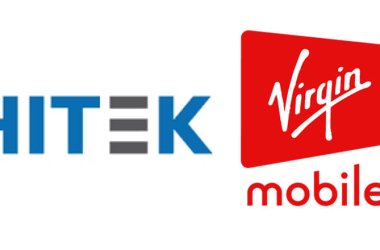Maersk and IBM had announced a joint venture to deploy a blockchain-based electronic shipping system that will digitise supply chains and track international cargo in real time.
The new platform could save the global shipping industry billions of dollars a year by replacing the current EDI- and paper-based system, which can leave containers in receiving yards for weeks, according to the companies.
Blockchain will enable a single view via a virtual dashboard of all goods and shipping information for all parties involved, from manufacturers and shippers to port authorities and government agencies.
As an immutable, distributed ledger, blockchain technology will also improve security, according to Michael White, former president of Maersk Line in North America and CEO of the new company.
“With blockchain, the improvement in security is significant with the double encryption,” White said. “And one of the advantages of blockchain is the immutable record and trust people can have in it. If anything changes in a document…, it’s immediately apparent to all.”
Blockchain’s native immutability as a distributed ledger will also create an automatic audit trail for regulators, something with which the industry has struggled.
The blockchain technology will employ smart contracts or self-executing workflows determined by the goods being shipped and the authorisation they require while in transport.
While international shipping is a $4 trillion a year industry, and 80 percent of the goods are carried on ocean vessels, much of the logistics involved in creating cargo manifests, tracking shipments and even getting sign-offs from customs and other port authorities remains a paper process.
According to both firms, the new blockchain-based, distributed electronic ledger could save the shipping industry billions of dollars a year by replacing a current EDI and paper-based system for tracking cargo and attaining approval from customs and port authorities.
As the cost and size of the world’s trading ecosystems continue to grow more complex, the cost of the required trade documentation to process and administer goods shipped globally is expected to reach one-fifth of the actual physical transportation costs.
Over the past 18 months, Denmark-based Maersk has been piloting the blockchain platform with various customers, including DuPont, Dow Chemical, Tetra Pak, Port Houston, Rotterdam Port Community System Portbase, the Customs Administration of the Netherlands and US Customs and Border Protection.
Maersk and IBM’s new company must still get regulatory approval, at which time its name will be announced. But the partners expect the new electronic shipping platform to be generally availability in the next three to six months, according to White.
The platform was built on IBM’s blockchain technology, which is provided through its cloud service. IBM’s blockchain is based on the open-source Hyperledger Fabric 1.0 specification created by the Linux Foundation.
IBM and Maersk have employed other cloud-based open source technologies on the shipping platform, including artificial intelligence, IoT and analytics in order to help companies move and track goods digitally across internal borders. Manufacturers, shipping lines, freight forwarders, port and terminal operators, shippers and customs authorities will all be able to access to the platform’s virtual dashboard on a permissioned basis.
To date, 18 percent of Maersk’s global containerised volume has already been entered into the blockchain application, a figure that will increase over time, according to Ramesh Gopinath, vice president of Blockchain Solutions at IBM.
Blockchain-based smart contracts will ensure all required approvals are in place, helping speed up approvals and reducing mistakes, according to both firms.
Upon regulatory clearance, solutions from the joint venture are expected to become available within six months, at which time White said he expects goods manufacturers, shippers, ports and other third parties to participate in adding new capabilities such as invoice dispute resolution.





